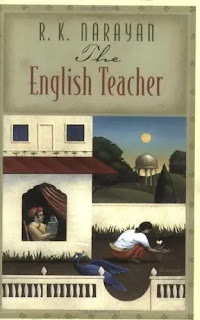Comment on the women characters in “The English Teacher”
R.K. Narayan is hardly credited with having a profound understanding of the female sex but it also cannot be denied that he does portray a variety of women of his time spanned across the cross-section of society. However, Narayan’s women are quite typecast. There is a typical Indian mother in the character of the mother of the English teacher. While his wife seems to be the universal representative of the typical Indian wife. Yet there are certain idiosyncrasies of these women characters that help them Transcend the brackets of limitations imposed by the age they belong to and achieve acceptability in the reader’s heart are as flesh and blood individuals.
Narayan’s women characters are storehouses of ancient customs and traditions. They are rock-solid in their beliefs and practices. They are usually very religious and at the same time highly superstitious. To some extent, they are also very stubborn. They are excellent homemakers and subtle debaters when it comes to the matter of household financing and housekeeping philosophy. In fact, it would not be wrong to say that the woman has the final word world inside the houses while the men rule the outer world. However, it must be kept in mind that women definitely project the social position of their lot in that particular age.
The character of Sushila is an interesting one and it is perhaps the only character that evolved throughout the play the maturity comes after her death and is to be estimated through her speeches to her husband on the philosophies of life. The meeting between Sheela and Krishnan at the doorstep of the railway compartment starts their life of togetherness that terminates only with death. Sushila across as a perfect wife another perfect mother. Narayan shows Sushila to be a true homemaker. She not only pick up the necessary skills of running home from her(mother-in-law) but also went to the extreme and of accepting my mother in laws idiosyncracies as well.
Sushila’s whole world revolves around her husband and daughter. In spite of having an interest in classics, she dedicates all her time to her family. She takes great pleasure in preparing new dishes for her husband and distance and distance with interest to all their day’s proceedings in college. Sheela seems to have no existence of her own. Narayan shows how easily women can place themselves as a second one in order of importance where family is concerned. When she died and becomes a spirit with whom the protagonist communicates, she comes across as a woman of substance. Narayan tries to show how women are able to think independently when they are free from the unavoidable chores of family life.
The next female character in the novel is Krishna’s mother. She is an embodiment of all the Indian traditional values and customs. Narayan shows how she trained her daughter-in-law as an heir to all her beliefs and customs and also the prejudice and idiosyncrasies. The character of Krishna’s mother is very flatly drawn by Narayan. She believes in what she says and there are no twists or turns to her character. She is a simple village lady filled with worldly wisdom Krishna’s mother is a perfect example of how Indian women can go to the most boundaries of their strength and willpower and keep the family in peace.
Krishna’s mother had sent an old lady as an aid to Sushila when she was alone with the child in their newly set up home in the town. This lady was a friend of his mother and had no one to look after her only son is dead. In the novel, the lady occupies a large through a shadow play space in the moon in an in this novel this lady of a large though a shadowed space. this lady takes a lot of odd jobs from Sushila’s hands and leaves free to spend some more time with her husband. The hidden side of Sushila, the apparently unseen side of Sushila that shows her interest in Tamil classical comes out after this lady takes swift and efficient control of the house.
The headmaster’s wife is not at all a suitable companion of the man who had such a novel concept about education. She falls far behind the other woman in all other qualities such as mothering for housekeeping. In fact, when the headmaster leaves home and settles permanently in the school premises, we fight we find we feel happy for him and a sense of poetic justice prevails in our mind. However, viewed the other way round the lady is not totally wrong in demanding the simple luxuries of life such as a house in a good neighborhood and other such needs. It is no not really necessary that the wife of every idealist should comply with their ideals.
The sum up, of R.K. Narayan’s The English teacher, is a complete treasure house of the varied women folk to be found in our soil. A minor invention a minor mention needs to be made about the mother of Sushila and the little girl Leela. Sushila’s as a mother is a kind of alter ego of Krishna’s mother, as a Mackean points out, again Leela has some likes and dislikes as that of her mother but these characters are quite undeveloped. Overall, the novel showcases women in almost all their hues but of course bearing the colors of the time they belong to.
